Are you ready to ace your pharmacology exams without the stress and overwhelm? Navigating the complexities of pharmacology study tips can be challenging, but Paramedic Flash has covered you. Our comprehensive guide on how to study pharmacology will equip you with essential tips and strategies for success. Let's start into the world of pharmacology study tips together!
Paramedic Flash's solution, paramedic pharmacology cards, is a valuable tool to help you achieve your objectives with the provided study tips.
What is Pharmacology?

Pharmacology is the branch of medicine that studies drugs and their effects on living organisms. This field explores how medications interact with biological systems, including how they are absorbed, distributed, metabolized, and excreted by the body. It provides crucial insights into the mechanisms of drug action, helping medical and paramedic students understand how pharmaceuticals work within the human body.
Why is Pharmacology Crucial for Medical and Paramedic Students?
Pharmacology is essential for medical and paramedic students as it forms the backbone of medication-related decisions and clinical practice. Students gain a profound understanding of medication's therapeutic and adverse effects, their mechanisms of action, and how to administer them effectively. This foundational knowledge ensures safe and precise drug dosing, minimizes adverse reactions and enhances patient outcomes.
Importance of Pharmacology Knowledge in the Medical Field
Pharmacology knowledge is critical in the medical field, and it empowers healthcare professionals to make informed decisions regarding medication prescriptions, dosages, and treatments. By understanding how drugs interact with the body and other medications, healthcare providers can tailor treatments to individual patients, reduce adverse reactions, and improve overall health outcomes.
Applications of Pharmacology in Real-World Scenarios
Pharmacology knowledge is applied in various healthcare settings in real-world scenarios. Emergency medical personnel, such as paramedics, use pharmacological profiles to provide rapid and effective treatments to patients experiencing medical emergencies.
Physicians leverage pharmacological insights to manage chronic diseases, such as hypertension or diabetes, by selecting the most suitable medications and dosages for individual patients. Additionally, pharmacology knowledge is crucial for preventing adverse drug interactions and complications in patients taking multiple medications simultaneously.
Pharmacology knowledge equips medical and paramedic students with the expertise to make informed clinical decisions, optimize medication regimens, and enhance patient care outcomes in diverse healthcare settings.
Related Reading
Essential Tips and Strategies for Studying Pharmacology

Developing a realistic and practical study plan is crucial for managing the vast amount of material in pharmacology. Set aside dedicated weekly study times, breaking down topics into manageable chunks. Prioritize areas where you need the most improvement and ensure to review regularly.
Active Learning Techniques
Flashcards
Utilizing flashcards can significantly enhance memorization. Create flashcards for drug names, mechanisms of action, side effects, and interactions. Paramedic Flash utilizes color-coded text and matching imagery to help students with learning disabilities better understand and comprehend the content.
Practice Questions
Engage in quizzes and practice questions to test your knowledge and identify areas needing further review. This active recall method helps reinforce learning and improves retention.
Group Study
Studying with peers can provide different perspectives and explanations, making complex concepts easier to understand. Group discussions can also solidify your understanding and clarify doubts.
Utilizing Resources Effectively
Textbooks and Lecture Notes
Make the most of primary resources by highlighting critical information and summarizing essential concepts. Online Resources are also beneficial, offering visual and auditory learning opportunities.
Memorizing Drugs
Mnemonics and Acronyms
Utilize memory aids to simplify the learning of complex drug names and classifications. Visualization also plays a role here, as creating visual associations with drug mechanisms and effects can enhance recall. Regular review and repetition are essential to solidifying your understanding and memory of drug information.
Application of Knowledge
Case Studies and Simulations
Applying your knowledge to real-world scenarios is crucial to understanding practical applications. Case studies and simulations can provide valuable insights into the use of pharmacological principles in clinical settings. Engaging with real-world scenarios can help enhance your understanding and application of pharmacology concepts.
How Can Effective Note-taking Improve Pharmacology Study?

1. Organized Information
Well-organized notes help you keep track of essential details, such as drug classifications, mechanisms of action, and side effects. This organization makes it easier to review and understand the material.
2. Enhanced Retention
Taking notes actively engages your brain, which improves memory retention. Writing down information in your own words helps reinforce learning.
3. Identifying Key Concepts
Effective note-taking helps identify and highlight key concepts and important information, making it easier to focus on essential topics during study sessions.
4. Visual Aids
Incorporating diagrams, charts, and tables into your notes can provide visual representations of complex information, such as drug interactions or pharmacokinetic processes.
5. Summarizing Information
Summarizing lectures and readings in your own words helps distill the material into manageable and memorable pieces.
6. Creating Study Guides
Well-organized notes can be used to create study guides and review materials, making preparing for exams and quizzes easier.
7. Tracking Progress
Practical notes allow you to track progress and identify areas needing additional study or clarification.
8. Reviewing and Revising
Regularly reviewing and revising your notes ensures that you stay current with the material and reinforces your understanding over time.
9. Paramedic Flash
At Paramedic Flash, we create comprehensive flashcards that complement effective note-taking by providing visual and interactive elements to enhance learning.
10. Collaborative Learning
Sharing notes with peers can offer new insights and fill in gaps in your understanding, promoting collaborative learning and study.
Paramedic Flash: Transforming Pharmacology Study Tips
Try our paramedic pharmacology flashcards today to become a more powerful paramedic and EMT! At Paramedic Flash, our flashcards use color-coded text and matching imagery to help students with learning disabilities better understand and comprehend the content.
We've helped decrease failure rates and boost EMT & Paramedic students' confidence in the field. We create 72 personalized drug cards with color-coded text, matching imagery, and med math breakdowns! We're proud to say that students across the US have rated our flashcards at 4.9/5. You can learn more about our reviews and our product on our homepage.
How Can Students Manage Stress and Stay Motivated?

Set Realistic Goals
Establish achievable study goals to avoid feeling overwhelmed. Break down larger tasks into smaller, manageable objectives. Students can enhance their motivation and stay on track with their study schedule by setting realistic goals.
Regular Breaks
Take regular breaks during study sessions to prevent burnout and maintain focus. Short breaks can refresh your mind and improve productivity. Incorporating breaks into study sessions can also prevent fatigue and help manage stress effectively.
Healthy Lifestyle
Maintain a balanced diet, exercise regularly, and get adequate sleep. A healthy lifestyle supports overall well-being and cognitive function. By prioritizing a healthy lifestyle while reducing stress, students can improve their energy levels and mental clarity.
Positive Reinforcement
Reward yourself for achieving study milestones. Positive reinforcement can boost motivation and make studying more enjoyable. Celebrating achievements, no matter how small, can help students stay motivated throughout their study journey.
Study Groups
Join or form study groups to stay motivated and share knowledge. Studying with peers can provide support and make learning more engaging. By collaborating with others, students can enhance their understanding of challenging concepts and stay motivated through shared experiences.
Stress-Relief Techniques
Students can use stress-relief techniques such as meditation, deep breathing exercises, or yoga to manage anxiety and improve concentration. They can explore stress-relief methods to find what works best for them and incorporate these practices into their study routine for optimal results.
Paramedic Flash
Using our comprehensive and visually engaging flashcards, students can reduce anxiety and improve their confidence in pharmacology. Flashcards can be an effective study tool for reinforcing learning and retaining information while managing study-related stress.
Seek Support
If you're struggling with stress or motivation, reach out for support from mentors, tutors, or counselors. Professional support can provide guidance and encouragement. Seeking support when needed can help students overcome challenges and maintain their motivation to succeed.
Stay Organized
Keep your study materials and environment organized to reduce stress and enhance focus. Organized study space can improve efficiency and concentration. Students can minimize distractions and optimize their study sessions by maintaining an organized study environment.
Self-Care
Prioritize self-care and relaxation to maintain a healthy balance between studying and personal well-being. Taking care of yourself helps sustain motivation and performance. By practicing self-care, students can recharge their energy and approach their studies with a refreshed mindset.
When Should Students Seek Additional Help?

Difficulty Understanding Concepts
Struggling to grasp fundamental pharmacological concepts can hinder your success in the field. Seeking help can clarify and reinforce your understanding of these essential concepts.
Poor Exam Performance
Consistently scoring below expectations in exams can be demoralizing. Seeking additional support can help address knowledge gaps and improve performance, leading to better assessment results.
High Stress Levels
Studying pharmacology can be stressful, especially if you struggle to grasp certain concepts. Seeking help can provide you with strategies to manage your stress levels effectively and enhance your learning experience.
Time Management Issues
Effective time management is crucial when studying pharmacology. If you need help managing your study time efficiently, seeking assistance with study strategies and time management can significantly improve your productivity.
Need for Advanced Understanding
Pharmacology is a complex field that requires a deep understanding of various topics. Specialized help can provide advanced insights and explanations if you want to delve deeper into complex concepts.
Lack of Motivation
Staying motivated while studying pharmacology can be tricky, especially when faced with challenging topics. Seeking support can provide you with encouragement and strategies to maintain your focus and enthusiasm for learning.
Difficulty with Application
Some students struggle to apply pharmacological knowledge to real-world scenarios. Additional help can provide practical examples and case studies to enhance their understanding and application of concepts.
Learning Disabilities
If you have learning disabilities that impact your study process, seeking specialized support can offer you tailored strategies and tools to enhance your learning experience and overcome any obstacles you may face.
Struggling with Resources
Sometimes, students may not effectively utilize the available resources to study pharmacology. Guidance on making the most of these resources can improve your study approach and help you achieve better results.
Need for Practice
Practice is vital when studying pharmacology, as it helps reinforce your understanding of concepts. If you require more practice with pharmacology questions and scenarios, seeking additional help can provide you with practice materials and simulations to enhance your skills.
Related Reading
- EMT Pharmacology
- EMT Study Guide
- Best Way To Study For NREMT
- EMT Mnemonics
- How To Study For EMT Exam
- How To Memorize Drugs For Pharmacology
Become A More Powerful Paramedic & EMT with Our Paramedic Pharmacology Flashcards
Paramedic Flash is here to help you master paramedic pharmacology and become a more powerful paramedic and EMT. Our flashcards are specially designed to cater to students with learning disabilities, helping them better understand and comprehend the content. By using color-coded text and matching imagery, we've decreased failure rates and boosted the confidence of EMT and paramedic students out in the field.
Our flashcards include 72 personalized drug cards with color-coded text, matching imagery, and med math breakdowns. Students across the US have rated our flashcards at 4.9/5, a testament to our success in helping students navigate the complexities of paramedic pharmacology. You can learn more about our reviews and products on our homepage.
Try our paramedic pharmacology flashcards today and see the difference they can make in your study routine. Get ready to delve into the vital world of paramedic pharmacology with Paramedic Flash!


